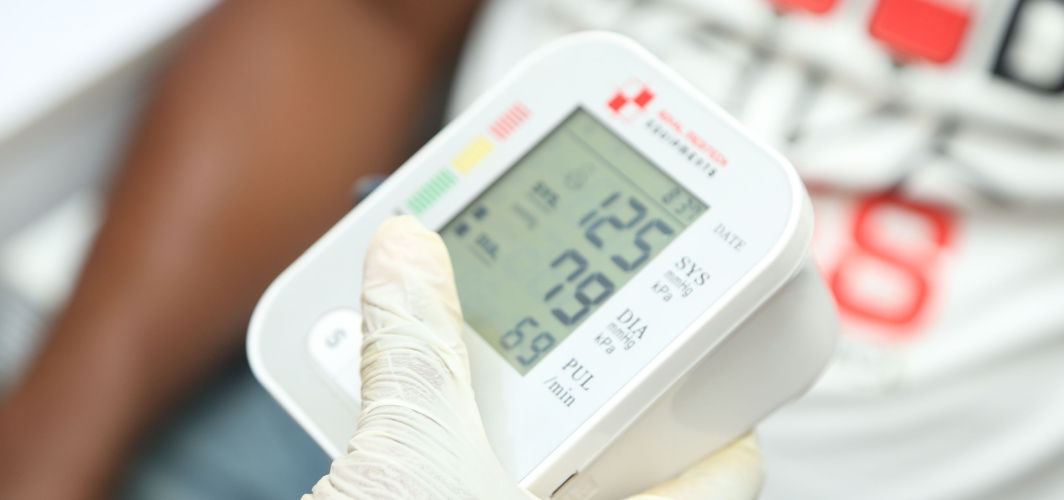Heart Conditions
What Is 2D EchoTest: Know Uses, Test Results, How To Read It
6 min read
By Apollo 24|7, Published on - 23 June 2023, Updated on - 04 February 2025
Share this article
0
0 like

A 2D echo test, also known as two-dimensional echocardiography, is a non-invasive procedure that utilises ultrasound waves to evaluate the function and structure of your heart. The images generated by this procedure are referred to as echocardiograms. Through this test, doctors can observe the real-time motion of the heart and assess its various structures. Discover more about the uses and importance of a 2D echo test.
Uses of a 2D Echo Test
The 2D Echo test serves various purposes in the diagnosis and monitoring of heart-related conditions. Some key uses of the test include:
- Assessing the function and size of the heart
- Diagnosing problems affecting the heart valve like regurgitation (incomplete closing of heart chamber) or stenosis (narrowing of the valve)
- Identifying any abnormalities like blood clots within the heart
- Detecting the buildup of fluid around the heart
- Evaluating congenital heart defects in children and infants
Which Conditions are Diagnosed using a 2D Echo Test?
A 2D echo test is conducted to further evaluate signs or symptoms that may indicate:
- Atherosclerosis (plaque build-up in the arteries of the heart)
- Congenital heart disease (defect in the heart since birth)
- Cardiomyopathy (disease affecting the heart muscle)
- Heart failure
- Heart valve disease
- Aneurysm (bulging of a blood vessel wall)
- Pericarditis (inflammation of the outer covering of the heart)
- Cardiac tumour
- Pericardial effusion or tamponade (fluid buildup in the outer covering of the heart)
- Shunts
- Atrial or septal wall defects
Additionally, a 2D echo test helps assess the overall function and structure of the heart. Your doctor may recommend this test for other specific reasons as well.
How is a 2D Echo Test Done?
A 2D echo test can be performed on an outpatient basis or during a hospital stay. The procedure typically lasts 40 to 60 minutes and follows these general steps:
- You’ll need to remove any jewellery or objects that may hamper the test. You can keep your glasses, hearing aids, or dentures if you use them.
- You will be asked to undress from the waist up and wear the gown provided to you.
- Then, you will be asked to lie on a table or bed, positioned on your left side with a pillow or wedge for back support.
- Once in position, you’ll be connected to the ECG monitor using adhesive electrodes to record the heart's electrical activity during the procedure. The ECG tracings are compared to the echocardiogram images.
- The technologist will apply warmed gel to your chest and use a transducer probe to capture images of your heart. You may feel slight pressure during the positioning of the probe.
- The technologist will keep moving the transducer probe around while adjusting pressure to obtain images of different heart structures. You may be asked to hold your breath or take deep breaths.
- If the heart structures are difficult to visualise, the technologist may use an IV contrast agent for better visibility, which is not iodine-based.
- After the procedure, the technologist will clean the gel from your chest and remove the ECG electrode pads. You can then change out of the gown and into your clothes.
How Long does it Take for an Echo Test?
An echocardiogram typically takes between 40 and 60 minutes. The exact duration of the test depends on the condition you are being tested for and specifically what the doctor is looking for.
Preparations Before a 2D Echo Test
There are minimal preparations needed for a 2D echo test. You can eat, drink and take medications as usual. Just make sure to dress comfortably and leave your valuables at home.
What to Expect After a 2D Echo Test?
Typically, there is no required recovery time after an echocardiogram. You can resume your normal activities immediately after the test. Depending on the results, the doctor may provide further recommendations.
What do the Results of a 2D Echo Test Show?
A 2D Echo test provides valuable information about the heart, including:
1. Changes in heart size
Enlarged heart chambers or thickened heart walls can indicate high blood pressure, damaged or weakened heart valves, or other diseases.
2. Pumping strength
The test determines the ejection fraction as well as the cardiac output.
- Ejection fraction: The ejection fraction is a measure of how much blood is pumped out of a filled heart chamber per heartbeat
- Cardiac output: Cardiac output reflects the amount of blood pumped by the heart in one minute.
If the heart's pumping capacity is insufficient, heart failure symptoms may occur.
3. Heart muscle damage
The 2D Echo test evaluates the movement of the heart wall, identifying areas that may be weak due to damage caused by a heart attack or a lack of oxygen.
4. Heart valve disorders
The 2D Echo test assesses the opening and closing of the heart valves, aiding in the diagnosis of valve disorders such as regurgitation or stenosis.
5. Congenital heart defects
This procedure detects structural changes in the heart and heart valves, facilitating the identification of congenital heart problems. It also helps evaluate any abnormalities in the connections between your heart and major blood vessels.
Also read: Know About Echocardiogram: Echo Tests, Procedures, Preparation And Reports
Takeaway
All in all, a 2D echo test provides valuable information about heart health and serves as a crucial tool for understanding and monitoring cardiac conditions. Talk to expert cardiologists if you have been recommended a 2D echo test or need more information about the procedure.
FAQs
Q. Can a 2D echo detect heart blockage?
Yes, the 2D echo test creates images of different parts of your heart, which are later evaluated by your cardiologist to check for blockage or damage to the heart valves or tissues.
Q. Are 2D echo and ECG the same?
No, echo stands for echocardiography, while an ECG stands for electrocardiography. An ECG assesses the electrical system of the heart, whereas an echo evaluates its mechanical system.
Q. Which is better- an ECG or a 2D echo?
A 2D echo is better than an ECG because it provides more accurate and detailed information on the functioning of your heart valve. An ECG (electrocardiogram) is a non-invasive test that determines the heart’s electrical imbalances and rhythm to help diagnose heart problems.
Q. What happens if my 2D echo is abnormal?
An abnormal 2D echo can mean many things.In some cases, abnormalities are minor and can be managed easily with medications & lifestyle changes. Other abnormalities may indicate serious heart disease, which may require further investigation and prompt treatment.
Q. Is 2D echo harmful?
A 2D echo test doesn’t pose any risks as it is completely non-invasive and does not use radiation.
Medically reviewed by Dr Sonia Bhatt.
Heart Conditions
Consult Top Cardiologists
View AllLeave Comment
Recommended for you

Heart Conditions
Sudden Drop In Blood Pressure On Standing? Know What It Means
Postural hypotension is a condition in which your blood pressure suddenly drops when you stand after a period of sitting or lying. It may cause dizziness or fainting. Treatment may vary depending on the underlying cause.

Heart Conditions
Arrhythmia: Causes, Symptoms, Diagnosis, Treatment & Prevention
Keep your heart healthy by understanding arrhythmia. Learn its causes, symptoms, diagnostic methods, treatment options, and preventive measures.

Heart Conditions
Pregnancy and High Blood Pressure: What Are the Risks?
Recent studies have shown that women suffering from hypertensive disorders during pregnancy are more likely to experience cognitive impairment later in life.
Subscribe
Sign up for our free Health Library Daily Newsletter
Get doctor-approved health tips, news, and more.
Visual Stories

7 Tips to Manage Hypertension
Tap to continue exploring
Recommended for you

Heart Conditions
Sudden Drop In Blood Pressure On Standing? Know What It Means
Postural hypotension is a condition in which your blood pressure suddenly drops when you stand after a period of sitting or lying. It may cause dizziness or fainting. Treatment may vary depending on the underlying cause.

Heart Conditions
Arrhythmia: Causes, Symptoms, Diagnosis, Treatment & Prevention
Keep your heart healthy by understanding arrhythmia. Learn its causes, symptoms, diagnostic methods, treatment options, and preventive measures.

Heart Conditions
Pregnancy and High Blood Pressure: What Are the Risks?
Recent studies have shown that women suffering from hypertensive disorders during pregnancy are more likely to experience cognitive impairment later in life.


